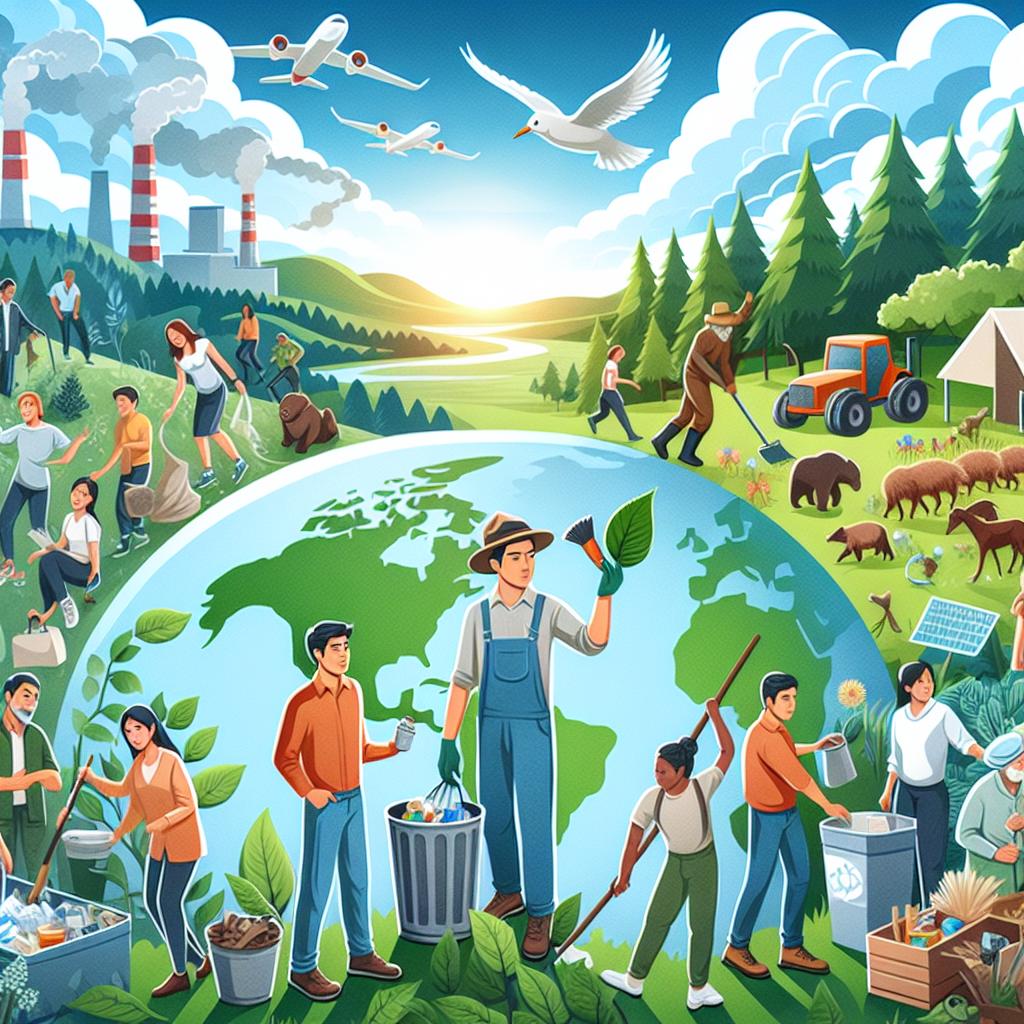Climate awareness

As we approach Earth Day on April 22nd, it's a reminder that our planet needs our collective action more than ever. This year's theme, "Invest in Our Planet," highlights the need to invest in solutions for environmental challenges, such as waste management, climate-smart agriculture, deforestation, climate education, wildlife protection, and air quality.
Firstly, let's discuss waste management. According to the United Nations, every minute, the equivalent of a full garbage truck worth of plastic is dumped into our oceans. Earth Day Network urges us to reduce, reuse, and recycle our waste to minimize our carbon footprint and keep our planet clean. By implementing proper waste management systems, we can prevent further damage to the environment and protect wildlife.
Next, climate-smart agriculture is crucial for sustainable food production and reducing greenhouse gas emissions. Climate change can negatively impact agriculture, leading to crop failures and food insecurity. Climate-smart agriculture practices, such as agroforestry, conservation agriculture, and precision agriculture, can help mitigate the effects of climate change on agriculture and promote more resilient food systems.
Deforestation is another environmental issue that requires immediate attention. Forests are essential for maintaining the Earth's carbon balance, providing habitat for wildlife, and protecting water resources. Deforestation contributes to approximately 15% of global greenhouse gas emissions. Earth Day Network encourages individuals and organizations to support reforestation efforts and reduce their demand for products that contribute to deforestation, such as palm oil and paper products.
Climate education is essential for creating a sustainable future. Earth Day Network emphasizes the importance of climate literacy and the need for education systems to incorporate climate change into their curriculums. By educating future generations, we can promote environmental stewardship and inspire them to take action to address climate change.
Wildlife protection is another critical issue. According to the World Wildlife Fund, populations of mammals, birds, amphibians, reptiles, and fish have declined by an average of 68% between 1970 and 2016. Deforestation, poaching, and climate change are just a few of the factors contributing to the decline of wildlife populations. Earth Day Network encourages individuals and organizations to support wildlife conservation efforts, reduce their consumption of animal products, and advocate for stronger wildlife protection laws.
Air quality is another environmental concern that requires attention. According to the World Health Organization, 9 out of 10 people breathe air containing high levels of pollutants. Earth Day Network calls on individuals and organizations to reduce their carbon footprint and support policies that promote clean energy and public transportation.
In conclusion, as we celebrate Earth Day this year, let's not just see it as a one-day event but as an opportunity to reflect on our actions and make long-term commitments to the environment. By addressing issues such as waste management, climate-smart agriculture, deforestation, climate education, wildlife protection, and air quality, we can create a sustainable future for ourselves and future generations.
Let us invest in our planet by taking concrete actions, such as reducing our waste, supporting climate-smart agriculture, protecting forests, promoting climate education, supporting wildlife conservation, and advocating for clean air. Together, we can make a difference and leave a lasting impact on our planet.
As we celebrate Earth Day, let us remember that every small step counts. Whether it's reducing your plastic use, supporting climate-smart agriculture, or advocating for wildlife protection, every action counts. Let's join together and invest in our planet, not just for one day, but for the future.




